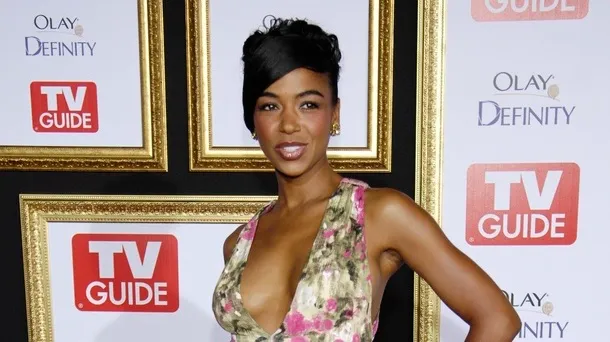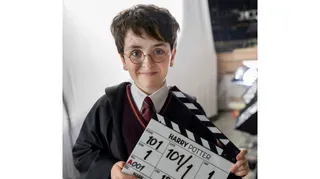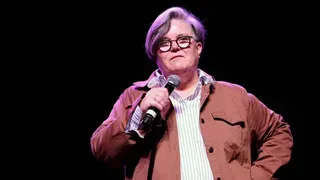December 25, 2015
Joy
Robert Nesti READ TIME: 3 MIN.
There's a Cinderella story at the heart of "Joy," David O. Russell's biopic based on the life of entrepreneur and inventor Joy Mangago; and like that fairy tale, it concerns a who can work wonders with a mop. In this case, the Miracle Mop that Joy invents. Its commercial success made her television personality in the 1980s, but there was no Prince Charming in the wings. If there's a message to Russell's film it's that a spunky entrepreneur needs to make her own happy ending.
At the film's start, Joy is a daydreaming 10-year-old whose ambitions are encouraged by her real-life fairy godmother -- her grandmother (Diane Ladd). But good intentions can't save Joy (Jennifer Lawrence as an adult) from the realities of her life and by her mid-30s she is single-handedly playing ringmaster to the dysfunctional circus that is her family. Her mother (Virginia Madsen) never leaves her bed where she's obsessed with spending her days watching soap operas (humorously parodied); her husband (a charming �dgar Ram�rez), with whom she's divorced, is a struggling lounge singer living in her basement; her dad (Robert DeNiro) is an aging Lothario with a just-barely functioning auto repair business; and her sister, who runs that business, is an embittered rival for her father's attention.
Like Cinderella she dreams of a better life; as it turns out, she holds the key to realizing her dreams. It comes when she invents a durable mop with a detachable head that she sees as her way out of her debt and hopelessness. Turning her idea into a business becomes the thrust of Russell's film, his third with Lawrence, DeNiro and Bradley Cooper, who plays the cable shopping network executive Joy partners with to market her invention. Her story (authorized, I presume, by the real-life Joy Mangago) makes for a reliably enjoyable romp in which Horatio Alger is recast as a 1980s housewife.
Reliable because Russell continues to recast durable Hollywood formulas for contemporary audiences: "The Fighter" looked back to boxing pictures; "Silver Linings Playbook" to '70s romantic comedies; and "American Hustle" recalled the classic caper. He's very good at doing this, in part because he's developed a small repertory company of actors (led by Lawrence, Cooper and DeNiro) who are wonderfully adept at comedy and, best of all, display remarkable chemistry when working together.
But Russell's magic dims a bit with "Joy." Not that the film is any better or worse than what came before, it's just that the director's work has become formulaic. What could have been a satire on the American Dream plays like a slick, wacky sit-com. It's a fun trip, but not a terribly original or critical one, perhaps because Mangago is one of the co-producers. In it her story is customized to fit numerous Russell memes: the come from behind victory; the lovable, but completely dysfunctional family; the screwballish plot with its flashes of success immediately followed by a pratfall. It just doesn't feel as fresh this time around.
As with his other films, its greatest strength are the actors. Lawrence again proves that she is one of filmdom's most engaging actresses, turning what could have been a clich� -- the downtrodden heroine with unfathomable resourcefulness -- into the film's sympathetic center. As in Russell's earlier films, there is all kinds of craziness orbiting around her, from her emotionally challenged mother to her abrasive dad and his haughty new girlfriend with deep pockets (a hilarious Isabella Rossellini). Again Russell uses the family's dysfunction to his advantage, mining it for comedy; yet it proves to be a glib approach that never mines the darker subtexts the story hints at. Instead Joy's enemies are from without: a creepy parts manufacturer out to steal her dream. Given the film's logic, they haven't a chance against Joy.
The best parts follow Joy's involvement with Home Shopping Network (HSN), the cable-shopping network run by Neil Walker, an ambitious executive cannily played by Bradley Cooper. Walker offers Joy a glimpse at the end of the rainbow, then nearly takes it away when her product fails to register with the public on its first introduction. Walker keeps a cool distance from Joy, which brings some needed tension to this portion of the story.
With Walker's business-like arrangement with Joy, Russell confounds his audience's expectations. Those expecting some romantic sparks between the two will be sorely disappointed; but Lawrence and Cooper have such rapport that they bring an added dimension to what's written in the script. As he's shown in the past, the writer/director (he co-wrote with Annie Mumolo) shrewdly mines the rapport between his actors. What joy there is to this film comes with watching the ensemble interact, not its by-the-number success story.
Robert Nesti can be reached at [email protected].







